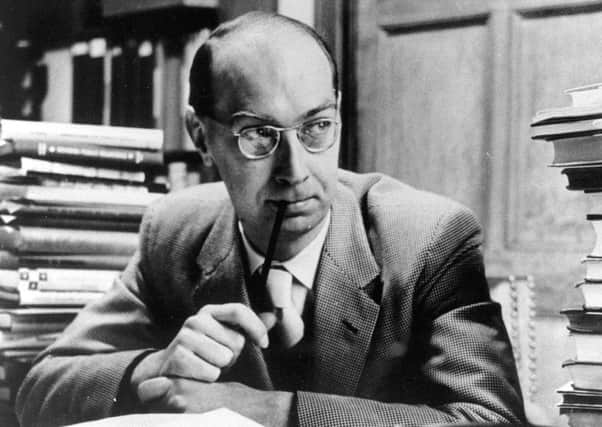Hull poet Philip Larkin takes his place among literary greats.


Today the poet and former librarian at Hull University, who died in 1985, will be commemorated with a memorial ledger stone near the tombs of fellow literary giants Geoffrey Chaucer and Charles Dickens, in Poets Corner in Westminster Abbey.
Among those reading from Larkin’s verse at this evening’s service of commemoration will be the actor Sir Tom Courtenay - who was born in Hull - along with the writer Blake Morrison and the artist and Turner Prize winner Grayson Perry.
Advertisement
Hide AdAdvertisement
Hide AdIt marks the end of a long campaign for recognition for Larkin, perhaps best-known for the line “They f*** you up, your mum and dad” in the poem This Be The Verse.
The poet, who spent 30 years as librarian at the University’s Brynmor Jones Library, remains a controversial choice for Poets Corner because of misanthropic and dubious views of race, displayed in his private correspondence.
However there are many like Prof James Booth, a retired academic at Hull University, who consider Larkin one the greatest poets of the 20th century. Speaking to The Yorkshire Post previously he said: “For me, he’s up there with Yeats and Eliot. He had great command of all the different techniques of poetry.
“I personally think he’s also one of the great love poets of the 20th Century. There are half-a-dozen of his poems which stand comparison with Thomas Hardy’s great love poems.”
Advertisement
Hide AdAdvertisement
Hide AdAsked how Larkin would have responded to the honour - he will be installed close to Ted Hughes - Mr Booth said he “would have probably pulled a funny face and quoted Hardy on ‘Life’s Little Ironies’.”
This morning staff from the University and students created their own tribute in the form of a mass selfie at Paragon Station in Hull, close to the statue of Larkin rushing for a train by Martin Jennings.
Dr John Wedgwood Clarke, Lecturer in Creative Writing at Hull University, said: “He’s honest, sometimes shockingly so. He acknowledges fear, pain and doubt – qualities that have become closely associated with him – but he’s also a poet who can be mischievously funny. That’s what keeps him current. And, of course, he gives us so many resonant, recognisable descriptions of Hull and the surrounding countryside. He puts the city on the 20th-century poetry map.’